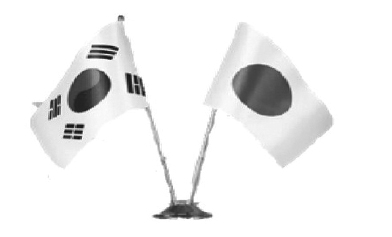
In recent times, South Koreans who traveled to Japan, wore Japanese apparel, or ate Japanese cuisine, could expect a stern rebuke from their neighbors, and they might hear the admonition: ‘Did you really have to do it?’ Around July 2019 banners like ‘No Japan’ and ‘I’m not going there, I’m not buying it,’ were displayed all over the country, and it showed that Koreans were intent on boycotting Japan. This boycott movement was the right thing to do for Koreans, and the result was a closure of some chain stores of a major Japanese retail company in several areas. Even now, it is hard to see customers in some Japanese brand stores. In this article we explore the outcome of this boycott, which came about as a result of Japanese economic provocation. The relevant statistics revealed the following facts.
First, according to statistics from the Japan National Tourism Organization (JNTO), a total of 1,160,305 Korean tourists visited Japan between August and December 2019. This was a drastic decrease of 60.19 percent over the previous year’s total of 2,914,629. As a result, the proportion of Korean tourists in Japan plunged from 24.17 percent in 2018 to 17.52 percent in 2019. The tendency is still ongoing, and the number of South Korean tourists visiting Japan in January 2020 was a mere 318,800, decreasing by 59.10 percent compared to the same period in 2019.
Another huge change is the trade balance between Korea and Japan. According to data from the Korea International Trade Association (KITA), imports from Japan accounted for 9.5 percent of Korea’s total imports in 2019. That is a decrease of 0.7 percent year on year. On the other hand, Korea’s total exports to Japan in 2019, accounted for 5.2 percent of the total, up by 0.2 percent from the last year. Although Korea’s exports to Japan in 2019 was about $28.42 billion, it dropped by 6.9 percent from 2018, and Japan’s exports to Korea dropped by 12.9 percent, making a difference of about $47.58 billion. According to the Youtube Channel run by Professor Choi Bae-geun at Konkuk University, Japan’s gross domestic product (GDP) in 2018 marked ¥114.1 billion less than 2017. The trade deficit makes up about ¥1.2 trillion of the total. However, trade with South Korea made a trade surplus of ¥2.6 trillion. Given these statistics, one would imagine that Japan has suffered a greater economic loss than Korea.
The third effect can be found in Korea’s semiconductor industry. According to KITA, in May and June 2019, before Japan’s regulations for the export of key semiconductor materials such as photoresist (PR), high purity fluoride and fluoride and fluorine polyimide (FPI) went into effect, Korea’s semiconductor exports stood at $7.54 billion and $8.3 billion respectively. The scale of these semiconductor exports showed no significant fluctuation even after August, when the regulation really began. Korea’s semiconductor exports from September to December, 2019 were about $8.5 billion, $7.86 billion, $7.39 billion and $7.28 billion respectively. These results show that Japan’s export regulations did not affect South Korea much. Expertise analyzed that this unaffected result was due to inventory management of semiconductor plants, diversification of sources of imports, and localization efforts of materials and components.
Notably, using domestic parts and semi-conductor material would have been hard to realize if it had not been for Japan’s tightened regulations on exports to South Korea. On January 21st Asahi Shimbun reported that “South Korea is starting to break from relying on Japan in terms of material, parts, or equipment sectors in its industry.” “By provoking the most sensitive part of the South Korean industry, and by toughening export regulations for semiconductors, Japan opened Pandora’s Box. This time economic independence from Japan certainly differs from before in terms of both quality and quantity.” The Japanese news added that due to all-out cooperation between the South Korean government and major, small and middle-sized companies, the efforts are paying off faster, compared to successive ones which brought little result. This is something which Japan regrettably overlooked. Professor Choi Bae-geun’s analysis on his Youtube channel ’Choi Bae-guen TV,’ shows that while Japan’s economic assault on Korea is damaging Japan as an increasing return, Korea has a structure in which profits increase over losses. It comes as no surprise then that from the end of last year, Japan is practically abolishing export restrictions and maintaining formal measures to keep its dignity, by delisting Korea from a so called ‘white list’.”
When the Korea-Japan Economic War began after Japan’s economic provocation, there were lots of people who quickly insisted on making peace with Japan because the potential damage to Korea could, according to them, potentially be disastrous. Maybe, to those people, Japan is an invincible country that Korea can never overcome, or maybe, they hold a long-time prejudice that Japan is 20 years ahead of Korea in terms of advanced technology and economic power. However, it soon became clear that Japan is more vulnerable than Korea in economic situation than they thought.
By Kwon Ji-ye
whodrk@cbnu.ac.kr


 All
All Society & Global
Society & Global






 Kwon Ji-ye
Kwon Ji-ye











